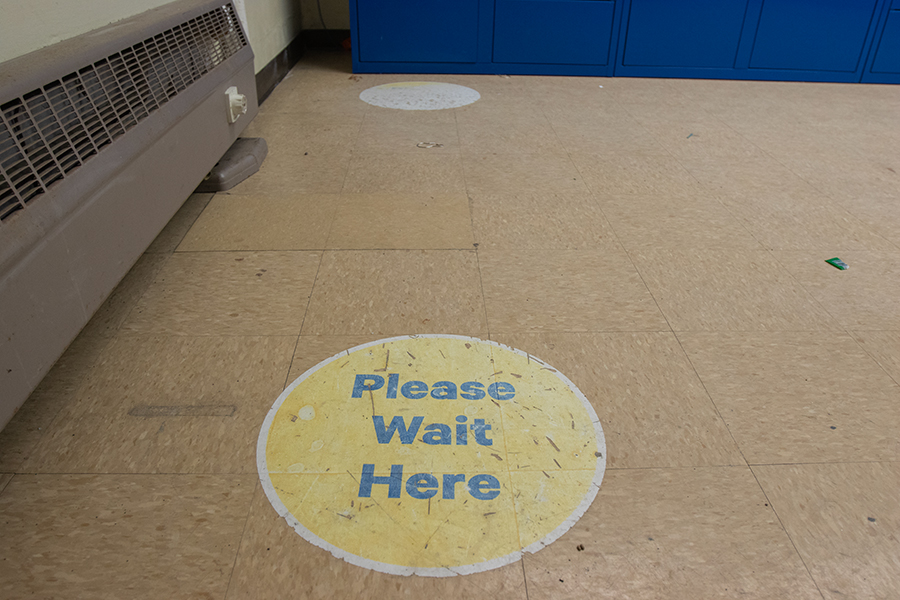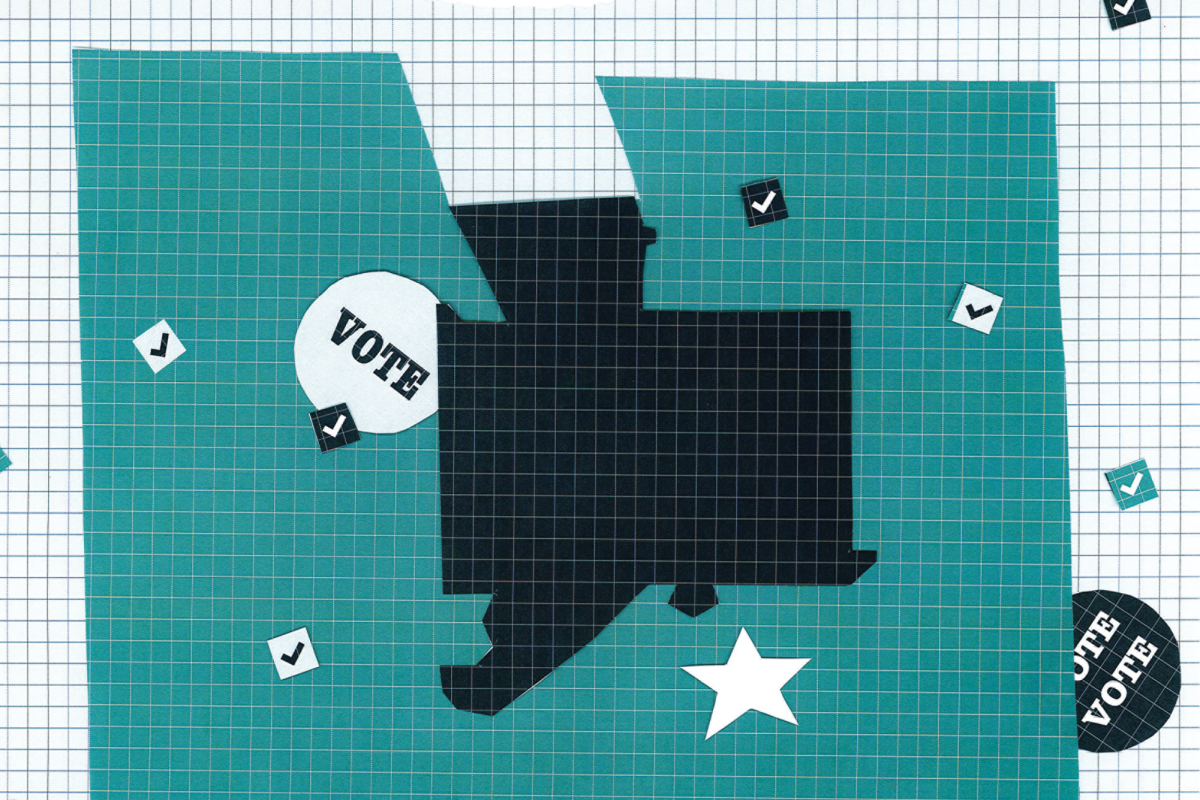The Washington Post reported Feb. 13 that the Center for Disease Control and Prevention (CDC) would be loosening COVID-19 guidelines and shifting from a five-day quarantine period to a one-day recommended quarantine period. There is no official date for the change and under the new guidelines, the CDC will recommend that people return to work or school after they have been fever-free for 24 hours.
Jennifer Metzger, director of Student Health Services, said via email that during the week of Feb. 4 to Feb. 10 Hammond Health Center saw 18 positive flu tests and seven positive COVID-19 tests and from Feb. 11 to Feb. 17 there were nine positive flu tests and five positive COVID-19 tests.
Metzger said the Hammond Health Center provides self-testing kits at the cost of purchase for $6.14 and provides free transportation for students who wish to go off campus for testing.
“I do know that there’s that discussion happening at the CDC right now, and we have two states that have adopted one-day isolation, California and Oregon,” Metzger said. “I think the main thought around [one-day isolation] is people are contagious before they are even symptomatic, so the question was [did] that long quarantine decrease disease?”
Quarantine guidelines for New York state are still a five-day isolation period. The college decided to cease offering COVID-19 testing locations and dedicated quarantine spaces May 31, 2023. In November, free over-the-counter (OTC) rapid antigen self-testing kits the college provided to students expired.
Samm Swarts, assistant director of Emergency Preparedness and Response, said he would encourage the campus community to continue receiving booster vaccinations for COVID-19 vaccines, but the college has transitioned to a full self-management system for COVID-19.
“I recognize that [the transition to full self-management] has been uncomfortable … but there’s no way that the college could offer [COVID-19 infrastructure] indefinitely, it’s just not something we could do,” Swarts said.
Swarts said the reason the college no longer provides free testing and quarantine spaces is the lack of a public health fee at the college. Swarts said the $75 fee was required from Fall 2021 to Spring 2023 and was included in student’s tuition.“We were able to use those dollars to basically build up a COVID infrastructure through wrap-around care, services [and] testing,” Swarts said. “For a time there we had quite a robust system in place.”
Senior Annalese Winegard said many things have changed in terms of COVID-19 infrastructure since her first semester on campus in Spring 2021.
“In the dining hall there was no seating, it was all in the [Ithaca College square] and it just made it really hard to be social,” Winegard said. “In the dorms, you couldn’t go into anybody’s room and you couldn’t go into other [dorm halls]. … It was hard to socialize.”
Winegard said she would rather have a lack of COVID-19 infrastructure than go back to restrictions that hinder student’s ability to be social on campus.
Sophomore Bria Petrella said she contracted COVID-19 after the MLK Concert on Jan. 27. in Ford Hall. Petrella said she was treated at the Hammond Health Center and was given a polymerase chain reaction (PCR) test to see if she was positive for COVID-19.
When the test turned out positive, Petrella said she had an issue because her roommate’s boyfriend is immunocompromised and Petrella’s roommate had to leave her dorm room to avoid getting sick.
“So [my roommate] left the room for the entire time I was sick,” Petrella said. “Because God forbid I get her sick and she gets him sick. I was quarantined for five days and I was just living off of food in my room.”
Petrella said she was able to email her professors to get the absences excused, but had trouble accessing materials from missed classes on Canvas and was not able to join classes via Zoom.
“It’s super stressful because I knew as soon as I was told [I had COVID-19] that I was going to be behind, and I was going to be in this state of catching up for the next month or possibly the rest of the semester,” Petrella said.
Swarts said the COVID-19 dashboard was discontinued in December 2022 because self-testing kits became available.
“Students were testing on their own and they weren’t reporting it to anybody,” Swarts said. “So it made it very difficult for us to provide accurate information to the campus community on how much COVID-19 was actually circulating on campus. … A lot of the requirements for reporting your positive tests went away once COVID-19 was no longer considered a public health emergency.”
Mary Bentley, associate professor in the Department of Health Promotion and Physical Education, said COVID-19 infections are difficult to track because there are no spaces for central testing.
“I don’t think that [a] dashboard is effective at preventing cases of COVID-19, it may be actually misleading … because I think if anything [the dashboard] would under-report,” Bentley said.
Bentley said the biggest factor in preventing infections is to keep up to date on COVID-19 and flu vaccinations. Bentley said vaccinations are more effective than any other preventative measure.
From 2013 to 2021, the Department of Health Promotion and Physical Education partnered with campus and local organizations to offer free flu vaccinations to the campus community. This exercise was referred to as a Flu Point of Dispensing (POD).
Bentley said that during some years the Flu POD would provide almost 1,000 vaccinations to the campus community in a day. In September 2021, the president’s cabinet decided not to support the Flu POD and encouraged the campus community to utilize clinics in the local community to receive a shot.
“Now people are responsible for their own flu shots just like they are responsible for their own testing,” Bentley said. “The change in the campus was we would help people with their vaccinations, but now it’s really kind of an individual thing because you can just go to Wegmans and get it.”
Winegard said she got her flu vaccination during the Flu POD in 2021 and said she wants the college to bring the Flu POD back and implement a similar event for COVID-19 vaccinations.
Metzger said there has been discussion and interest within Student Health Services and Cayuga Medical in bringing the Flu POD back to campus.
“We try to run those types of vaccine clinics in the fall,” Metzger said. “In early August or September next semester [we will] see where we’re at with planning, and by then we will have a firm idea of if we’re going to do [the Flu POD] or not.”
















